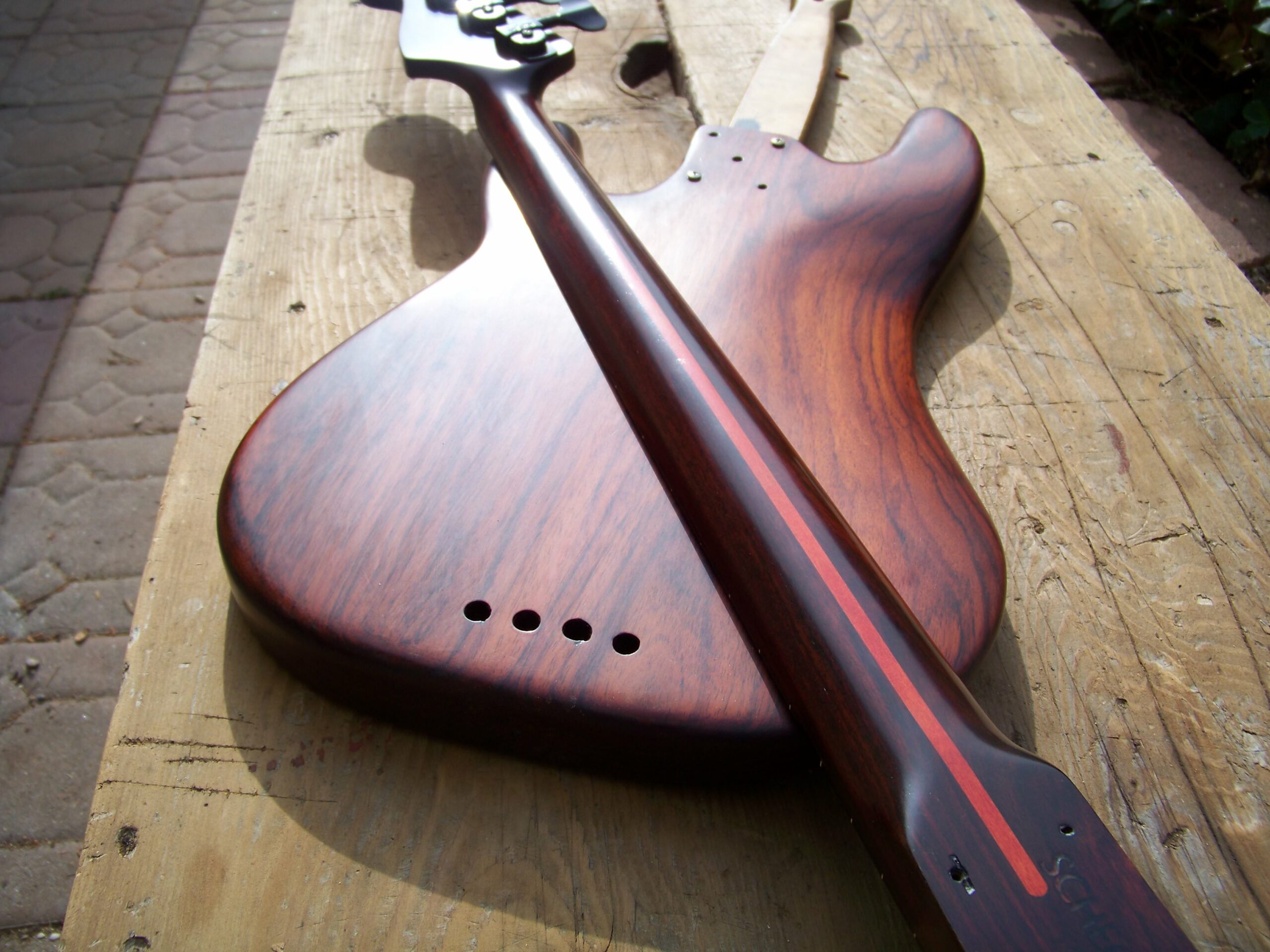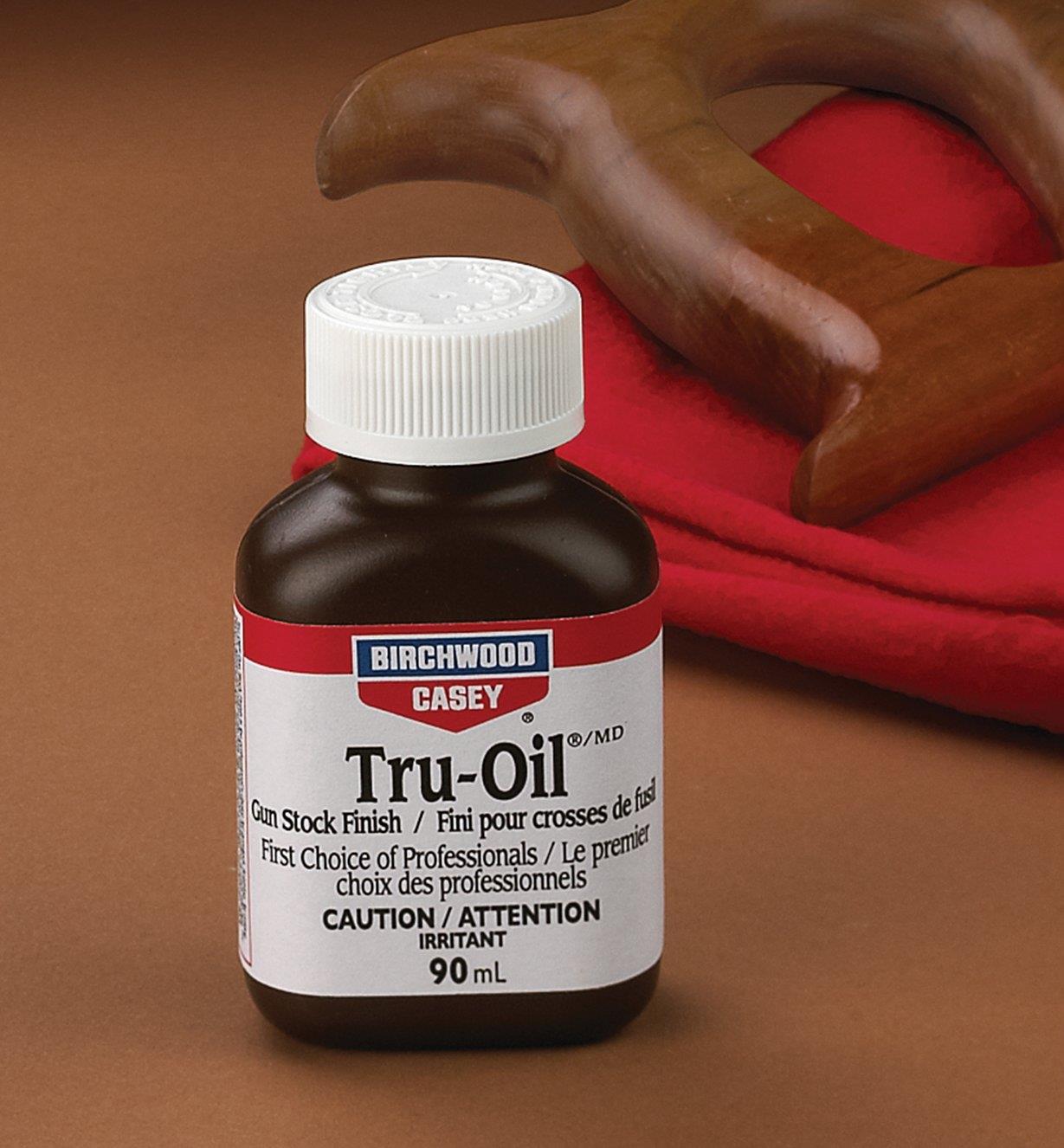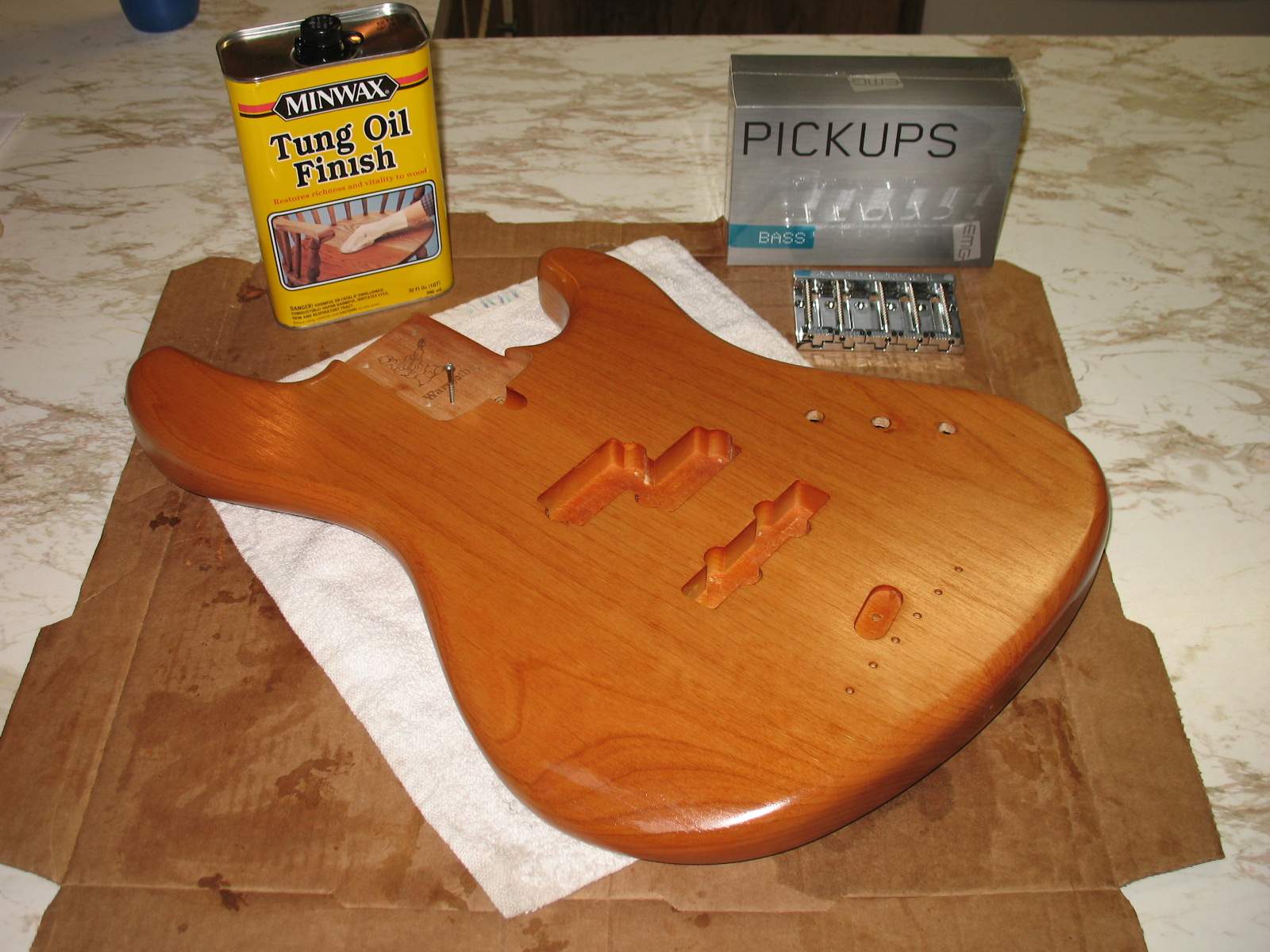Contents
All in all, various factors affect the value of a guitar nowadays and aesthetics is one of them. To protect and improve the appearance of their instruments, quite a few modern guitarists resort to finishing oils such as Tru-Oil and tung oil. Effective and efficient, both oils will turn plain guitars into beautiful ones if applied properly. That being said, as Tru-Oil and tung oil have unique pros and cons, Tru-Oil vs. tung oil naturally becomes a hotly discussed topic.
A Comparison Of The Oil
Composition
In case you don’t know, Tru-Oil is a synthetic product consisting of mineral paint thinners, oil varnish and tung/linseed oil. On the other hand, tung oil is for the most part natural as it’s made from the seeds of tung trees. Consequently, tung oil is popular among guitarists who don’t want to expose their delicate instruments to chemicals if they can help it. However, Tru-Oil uses mild chemicals so there is no need to worry too much about them harming your guitar over time.
Application
The forgiving nature of Tru-Oil and tung oil means their application only involves a bit of effort. Still, it’s important to point out that Tru-Oil differs from tung oil in terms of drying time. Since Tru-Oil is applied in thick coats, it may take some time to dry which lengthens the process if you intend to apply multiple coats. Meanwhile, tung oil is applied in thin coats so it dries fast and facilitates the application of multiple coats in one setting.
For odor, tung oil possesses a strong smell compared to that of Tru-Oil so if you have a sensitive nose, go for Tru-Oil. Of course, if you wear a mask and the workspace is well-ventilated, odor will be less than an issue.
Result
Considering the composition, it’s no surprise that Tru-Oil tends to give guitars a glossy finish following application. About tung oil, it‘s going to give guitars a natural appearance that looks classy in all sorts of settings. When tung oil coats dry, the finish of guitars often features a gold, honey-ish color but a number of variants can produce darker profiles. As different people have different preferences, there is no clear winner in Tru-Oil vs. tung oil regarding result.
Protection
To put it plainly, Tru-Oil as well as tung oil prove capable of providing tip-top protection to instruments. In the case of Tru-Oil, the moment the coats dry, they should protect guitars from various threats including chemicals, water and so on. For tung oil, it’s good at resisting scratches, wear and tear, … so guitars will stay in good condition for a long time. Of course, guitarists must reapply coats of oils every now and then to maintain the level of protection.
Price
For your information, the labor-intensive manufacturing process of tung oil means it usually costs more than other finishing oils including Tru-Oil. Nonetheless, depending on supply and demand, it’s uncommon for the price of oils on the market to increase and decrease. On average, you can get 32 fluid ounces of Tru-Oil for less than $40 while the same amount of tung oil costs you around $45. Unsurprisingly, budget-minded guitarists who wish to save money at every opportunity rate Tru-Oil above tung oil.
Decision: It’s Your Call
|
Tru-Oil |
Tung Oil |
|
-Synthetic -Dries slowly, mild odor -Glossy finish -Protects guitars against chemicals, water, … -Cheap |
-Natural -Dries quickly, strong odor -Gold, honey-ish finish -Protects guitars against scratches, wear and tear, … -Expensive |
Owning to the unique characteristics of the oils, they excel in distinct settings which make it hard to tell which one comes out on top. Because of that, it’s up to you to find the right finishing oil for your guitar. If you desire a no-nonsense oil that is both forgiving and affordable, you won’t regret investing in Tru-Oil. On the other hand, if you have money to spend and want to give your guitar a vintage look, pick up tung oil.
FAQs
Is it possible to use Tru-Oil and tung oil together?
In layman’s terms, you can apply both Tru-Oil and tung oil to your guitar but you must exercise caution. For good measure, only apply the next coat of oil when the current coat dries to the touch. Feel free to apply the oils in whatever order you like but for optimal results, choose Tru-Oil and tung oil for overcoat and undercoat respectively. Assuming that you nail the application, the oils should complement instead of contrasting each other.
Which oil is the best alternative to tung oil?
If you like tung oil but don’t wish to use it for some reason, other options exist: Danish oil, teak oil, linseed oil, etc. Properties of the mentioned oils resemble that of tung oil so they will give a good account of themselves in use.

Hi music fan! I am Jeff. Hope that you enjoy some stuff I shared here in my personal blog.
About myself, Currently I am in charging as Artist Manager/Music Supervisor at 72 Music Management. I did managed album to Grammy Award in 2017 with 7 Nominations from 2014-2020 and had the opportunities to work with : A.J. Croce, Blind Boys of Alabama, Bobby Rush, Dom Flemons, Dustbowl Revival, Sarah Grace
Governor of the Memphis Chapter of The Recording Academy is one of a award that I am lucky to achieved.


